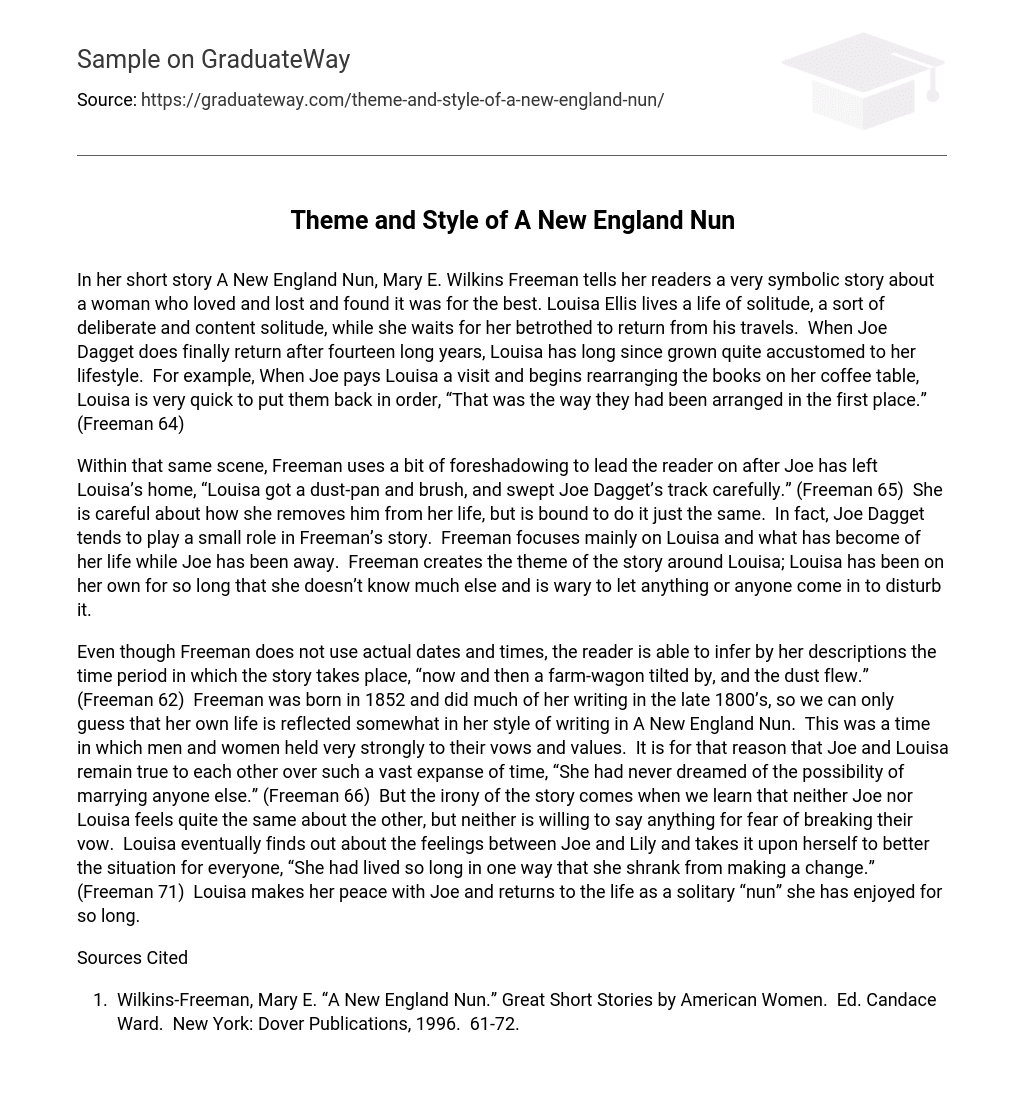In her short story A New England Nun, Mary E. Wilkins Freeman tells her readers a very symbolic story about a woman who loved and lost and found it was for the best. Louisa Ellis lives a life of solitude, a sort of deliberate and content solitude, while she waits for her betrothed to return from his travels. When Joe Dagget does finally return after fourteen long years, Louisa has long since grown quite accustomed to her lifestyle. For example, When Joe pays Louisa a visit and begins rearranging the books on her coffee table, Louisa is very quick to put them back in order, “That was the way they had been arranged in the first place.” (Freeman 64)
Within that same scene, Freeman uses a bit of foreshadowing to lead the reader on after Joe has left Louisa’s home, “Louisa got a dust-pan and brush, and swept Joe Dagget’s track carefully.” (Freeman 65) She is careful about how she removes him from her life, but is bound to do it just the same. In fact, Joe Dagget tends to play a small role in Freeman’s story. Freeman focuses mainly on Louisa and what has become of her life while Joe has been away. Freeman creates the theme of the story around Louisa; Louisa has been on her own for so long that she doesn’t know much else and is wary to let anything or anyone come in to disturb it.
Even though Freeman does not use actual dates and times, the reader is able to infer by her descriptions the time period in which the story takes place, “now and then a farm-wagon tilted by, and the dust flew.” (Freeman 62) Freeman was born in 1852 and did much of her writing in the late 1800’s, so we can only guess that her own life is reflected somewhat in her style of writing in A New England Nun. This was a time in which men and women held very strongly to their vows and values. It is for that reason that Joe and Louisa remain true to each other over such a vast expanse of time, “She had never dreamed of the possibility of marrying anyone else.” (Freeman 66) But the irony of the story comes when we learn that neither Joe nor Louisa feels quite the same about the other, but neither is willing to say anything for fear of breaking their vow. Louisa eventually finds out about the feelings between Joe and Lily and takes it upon herself to better the situation for everyone, “She had lived so long in one way that she shrank from making a change.” (Freeman 71) Louisa makes her peace with Joe and returns to the life as a solitary “nun” she has enjoyed for so long.
Sources Cited
- Wilkins-Freeman, Mary E. “A New England Nun.” Great Short Stories by American Women. Ed. Candace Ward. New York: Dover Publications, 1996. 61-72.





